Published Feb 10, 2023
The Legendary Legacy of Nichelle Nichols
One fan pays tribute to the multitude of stories and adventures that make Nichols' life so fascinating.
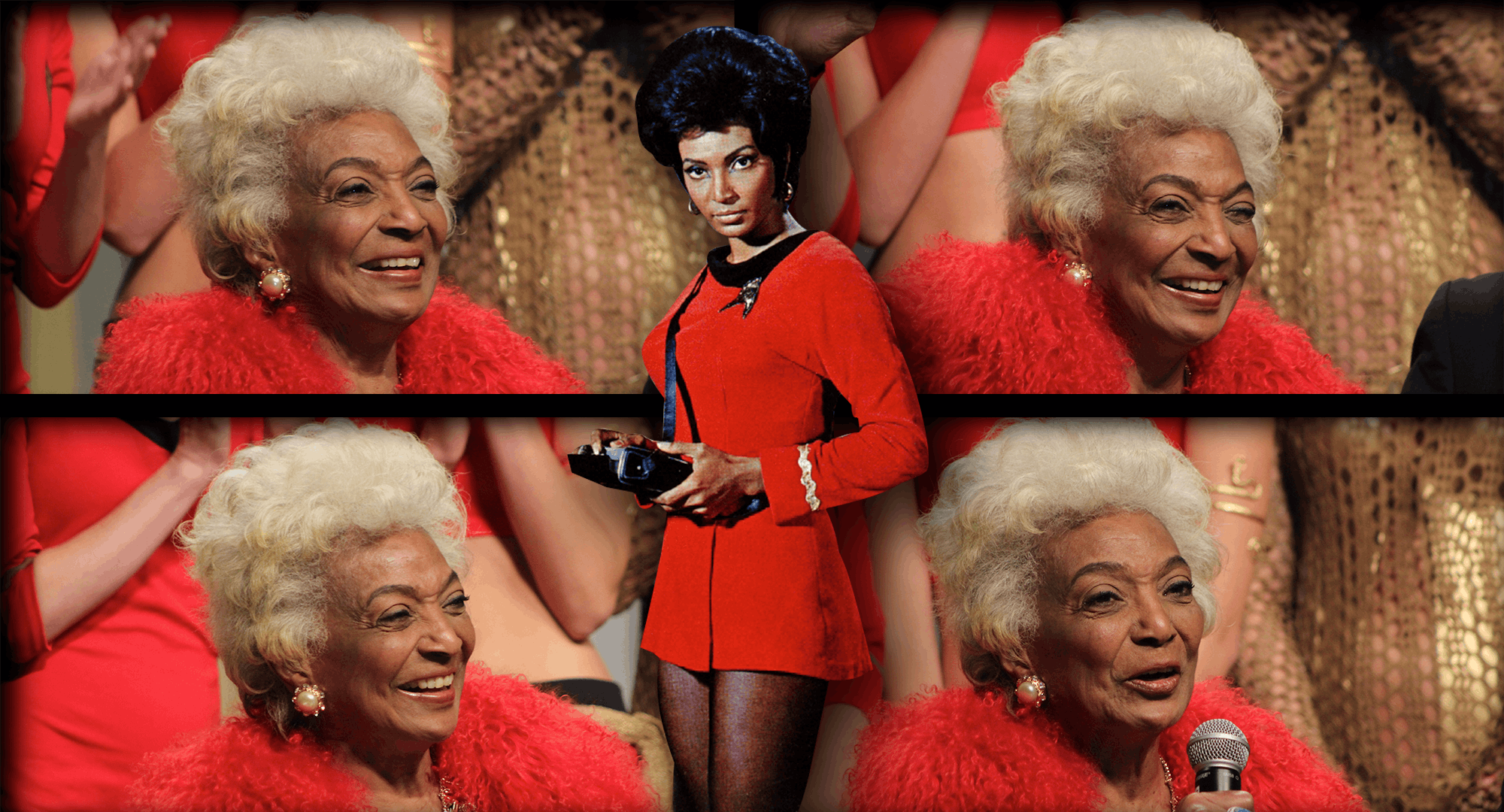
StarTrek.com
Every year, in every way, Nichelle Nichols becomes even more beloved than she was before (if that's possible). She's regal, elegant and ever-so-charming. She has made numerous convention appearances over the last four decades with more slated throughout this year, all celebrating Gene Roddenberry's star-spanning saga and her groundbreaking role in it as Lieutenant Nyota Uhura.
"Many fans, even to this day, when meeting Nichelle Nichols are a little jolted that I am not Uhura," the actress admitted in Starlog #100. "I don't act like Uhura. I have a totally different personality. So, I find people discovering that, and they act like they're meeting a whole new character."
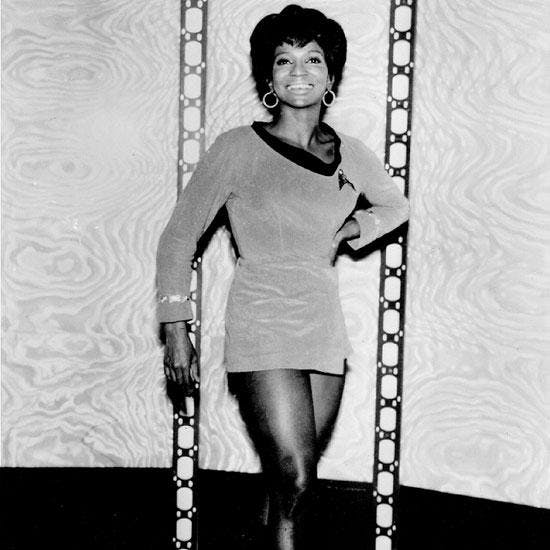
[RELATED: Remembering Nichelle Nichols, 1932-2022]
There have been countless opportunities to meet Nichols — a self-described "fan of the fans" — in person. At conventions, we Trekkers line up for personal audiences to get her autograph, pose for photos with her, or just chat about the stories and legends that have made up her life. These are tales that Nichols has told in most convention appearances and many interviews (at least eight talks with Starlog, plus chats with other magazines, newspaper, TV, and radio outlets) as well as in her 1994 autobiography Beyond Uhura: Star Trek and Other Memories. One anecdote concerns how her father suggested she confront obstacles of all kinds in life — "If you have lemons, make lemonade."
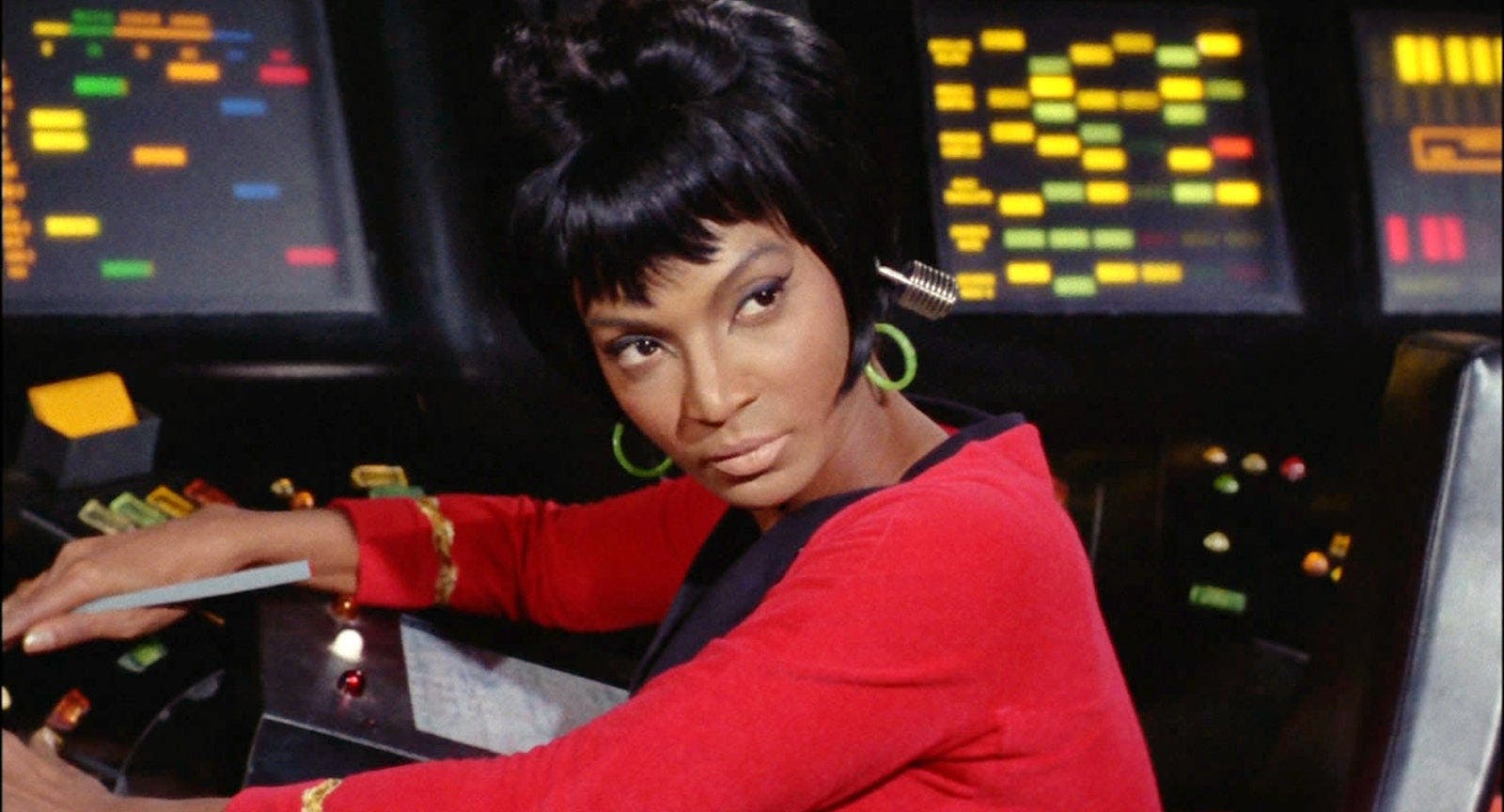
StarTrek.com
Another focuses on a remarkable milestone involving a kiss from Uhura, one bestowed in "Plato’s Stepchildren," an episode of Star Trek broadcast in 1968. That’s where Lieutenant Uhura and Captain Kirk share what Nichols and William Shatner call TV’s first interracial kiss (though it was non-consensual, as they were forced to kiss by their mythic captors). It was a significant advance in what could be portrayed on American television screens.
The third story is perhaps the most legendary of all. As Nichols tells it, circa the end of Trek’s first season (1966-1967), she considered departing the series. And she really didn’t, but that was also true storywise for the characters played by James Doohan, George Takei and Majel Barrett Roddenberry. Nichols confided in legendary civil rights leader Dr. Martin Luther King, Jr., who took a different view.
She had to remain onboard the series, King argued, because her very presence on the U.S.S. Enterprise Bridge promised that Black people would be a fully integral, equal part of all our tomorrows — on Earth and in outer space. Nichols was, King declared, an important role model for minority youngsters and young women looking to the future.
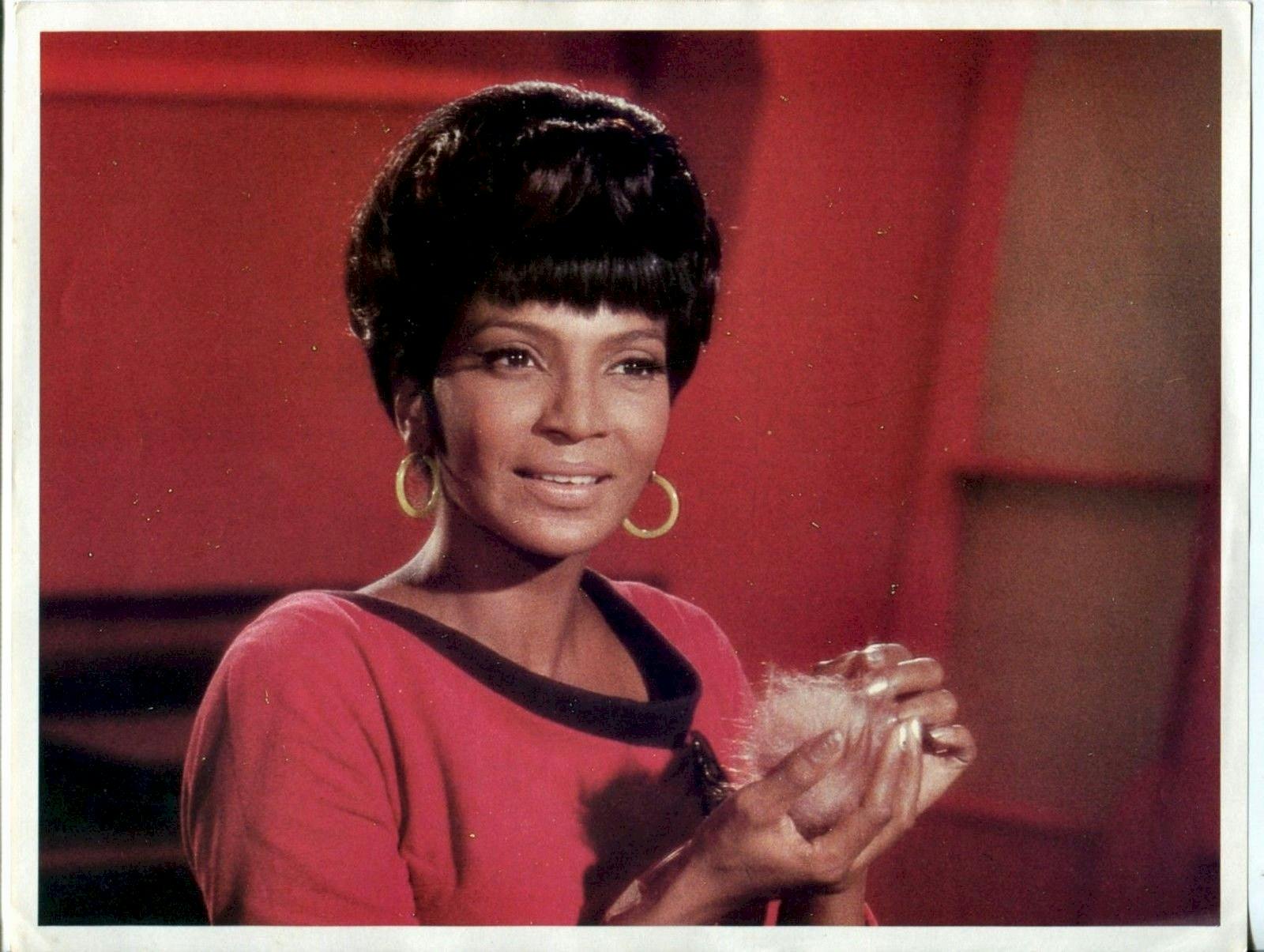
StarTrek.com
[RELATED:Nichelle Nichols Opened the Door Wide Enough for Others to Step Through and See the World]
"Martin Luther King asked me not to leave," Nichols explained to Starlog #151 (1990). "He said my role of Uhura was important because it was a major role played by a Black that was not specifically designed for a Black or a female. He said Uhura was not a small character, that I was 10 feet tall and that I was opening many doors. I had no intention of leaving the show after he said that. But I've got to be honest with you. I still look back on that decision with mixed emotions."
Nichols elaborated two years later in another Starlog conversation. "[King] told me, 'You've opened a door that can never be closed again. You've changed the face of television.' That is no small achievement. And I am very, very proud."
However, "I don't want anybody being color-blind when they look at me," she announced in Starlog #116. "I resent somebody saying, 'Oh, I don't mind that she's Black, I'm color-blind.' Well, wake up, fella, and smell the roses. I like being who I am, and I'll be damned if I want you accepting me in spite of the fact that I'm a woman, and I'm Black and I'm whoever I am. Deal with me, and appreciate and accept me for what I am."
And that's someone extremely important, in my view, to science-fiction.
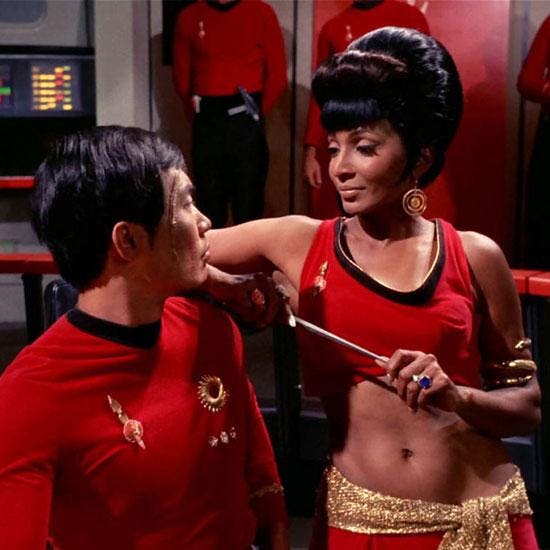
StarTrek.com
In 1985, we were looking for a theme to mark Starlog #100 and make that landmark edition something special. Initially, I suggested a feature dubbed "The 12 Most Important People in Science Fiction." I envisioned them as the genre’s founding fathers (Jules Verne, H.G. Wells), pioneering SF magazine editors (Hugo Gernsback, John W. Campbell), innovative writers (Robert Heinlein, Isaac Asimov, Ray Bradbury, Arthur C. Clarke), TV creators (Rod Serling, Roddenberry) and moviemakers (George Lucas, Steven Spielberg).
To truly celebrate Starlog’s centenary issue, we expanded that idea from a mere dozen to an issue-number-matching "100 Most Important People in SF & Fantasy." Further nominations came from me (as editor), managing editor Carr D’Angelo, special FX editor David Hutchison and publisher Kerry O’Quinn. And I championed Nichelle Nichols.
In a certain aspect, there was no contemporary person more important than Nichelle Nichols on that list. After Star Trek’s resurgent popularity in the 1970s, Nichols began to work with NASA, recruiting would-be astronauts for the space shuttle and trying to diversify its off-planet legions with more women and minorities (like Sally Ride and Mae Jemison). She’s the only person that I could think of back then in 1985 — or now, three decades later, for that matter — who actually transformed her science-fiction celebrity into true heroism. The woman who pretended to be an adventurer in space spurred on others to really reach for the stars.
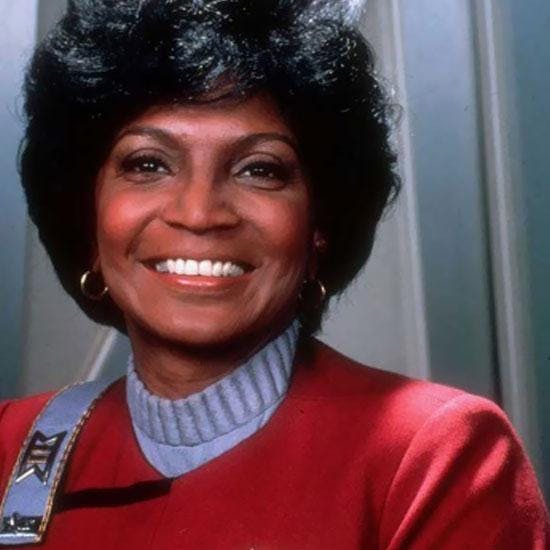
StarTrek.com
[RELATED: Hailing Frequencies Open as the World Remembers Nichelle Nichols]
"That was a very successful venture, very rewarding in my life.... The first six women and three Black men, as well as the first Asian and Indian astronauts are because of me," Nichols noted in Starlog #175. "I had a touch with history."
This article was originally published on May 14, 2016.
David McDonnell (he/him), "the maitre’d of the science fiction universe," has dished up coverage of pop culture for more than three decades. He apparently still holds this galaxy’s record for editing more magazine pieces about Star Trek in total than any other individual, human or alien.
Stay tuned to StarTrek.com for more details! And be sure to follow @StarTrek on Facebook, Twitter, and Instagram.

